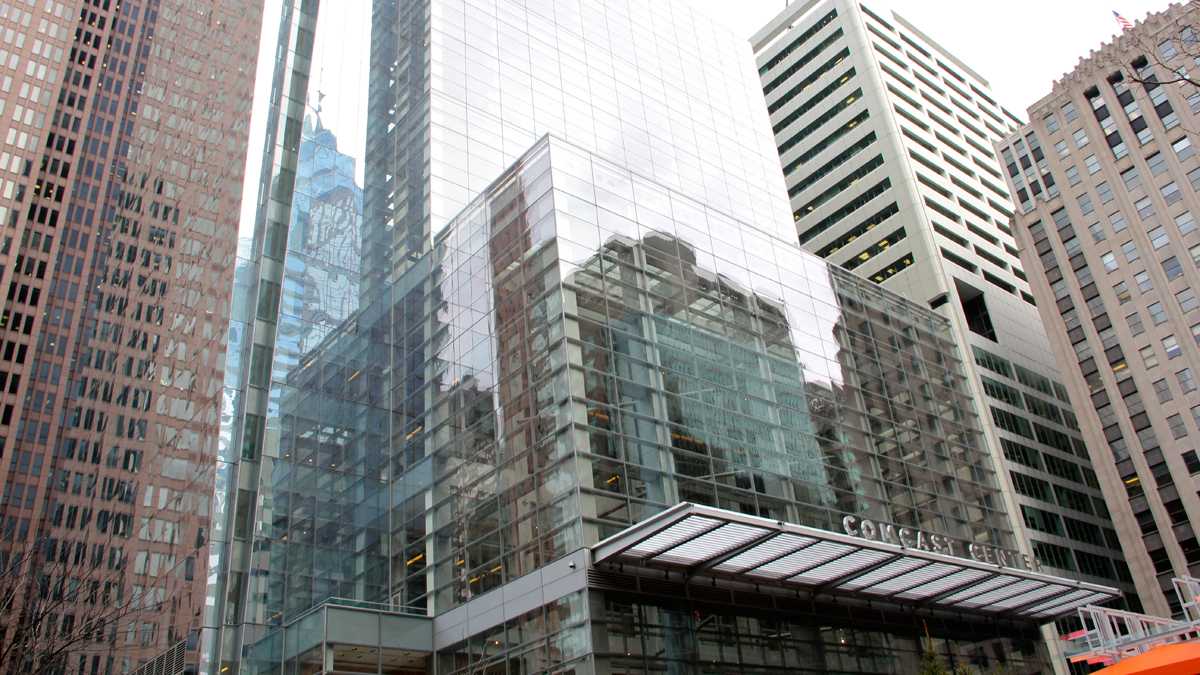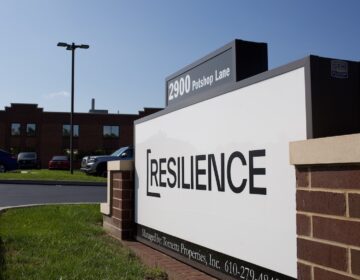With ‘virtual’ shareholders meeting, Comcast joins growing trend
Listen
The Comcast Center
When shareholders gather for Comcast’s annual meeting next Thursday, they won’t be inside Philadelphia’s Kimmel Center, as in years past.
Instead, the Philadelphia-based company is hosting a “virtual” meeting, a technological move not everyone is happy about.
“It puts them in complete control, and some boards and managers want to be in control,” said James McRitchie, a shareholder rights advocate based in California. Online meetings strip away the ability to stand face-to-face with a CEO and ask him or her direct questions.
“It’s like going to see the dictator speak,” he said.
But John Demming, a Comcast spokesman, said an online meeting allows shareholders from across the country the chance to participate at no cost. In recent years, attendance at Comcast’s annual meeting has hovered at just 30-40 shareholders.
“We believe it will provide expanded shareholder access and participation in it. Also, more improved communication and, over time, cost savings for our company and the shareholders,” he said.
About 90 companies held virtual meetings last year, including Hewlett-Packard, which has also dealt with activists during shareholder gatherings.
Still, going online doesn’t necessarily mean executives can control the course of events.
“There’s a history of hundreds of years of shareholders figuring out how to use these meetings as a platform to embarrass the managers of the firm, and I think with a new technology, I wouldn’t underestimate modern activists’ ability to use the platform to their own benefit,” said David Yermack, a professor at NYU’s Stern School of Business.
Some firms are choosing a middle ground, having both a physical event and an online portion. While that hybrid meeting still opens the door to potential protests, it perhaps does give management a better sense of how customers and investors view the company’s performance.
“I just think it is a bit myopic of a company to try to avoid the kinds of issues its shareholders and management are faced with,” says Mary-Hunter McDonnell, who researches corporate social responsibility at The Wharton School of the University of Pennsylvania.
“Because those ‘in-the-streets’ protests are great signals of issues that could become extreme reputational threats for the company,” she said.
WHYY is your source for fact-based, in-depth journalism and information. As a nonprofit organization, we rely on financial support from readers like you. Please give today.




